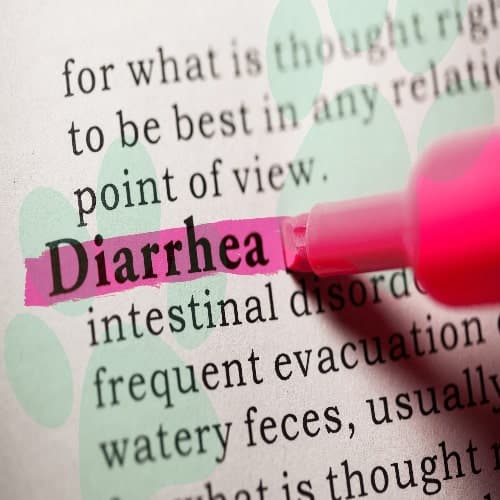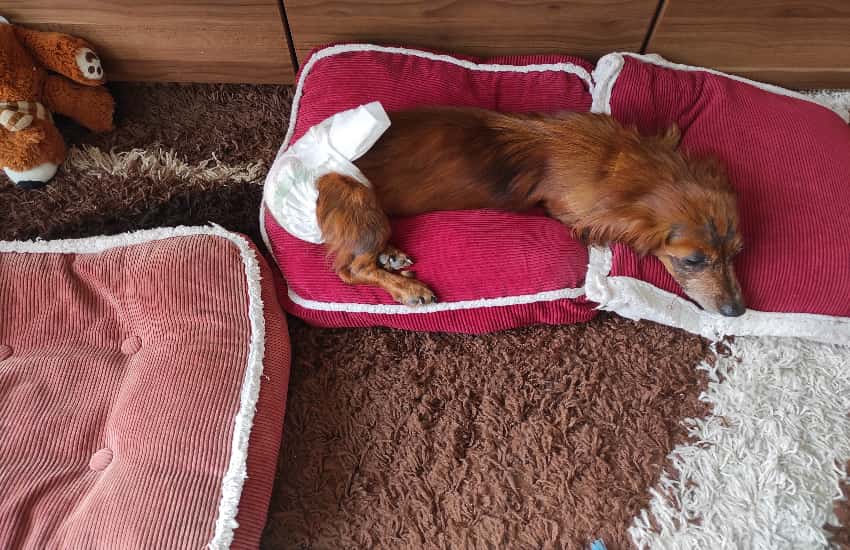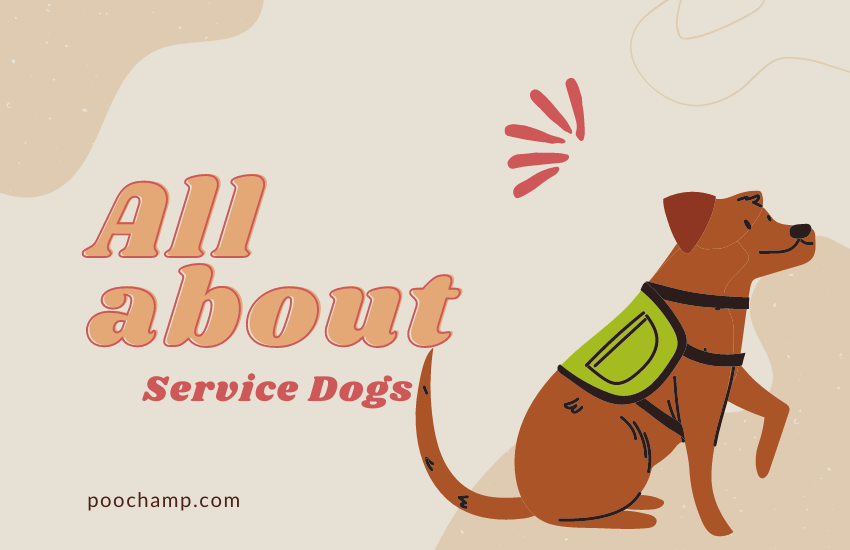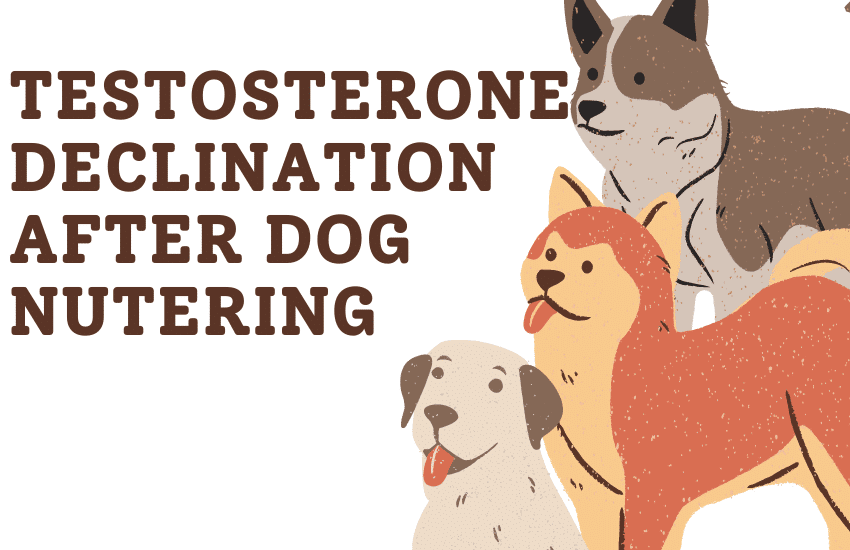As a loving pet parent, it’s natural to feel concerned when your furry friend is not feeling well. If you’ve ever found yourself asking, “Why does my dog have diarrhea?”, you’re not alone. Diarrhea in dogs can be an ordinary yet distressing symptom, leaving us worried and wondering what could be the cause. In this article, we’ll explore the factors that answer the question: What causes a dog to have Diarrhea?
What Are the Different Types of Diarrhea in Dogs?
Recognising that this condition can vary widely in severity, duration, and causes is essential. Diarrhea in canines generally falls into two main categories: acute and chronic.
Acute Diarrhea.
Acute Diarrhea in dogs usually arises suddenly and lasts anywhere from a couple of days to several weeks, usually as the result of indiscretions in diet or infection with viruses, bacteria, parasites or stress-related medications.
Acute diarrhea symptoms often include loose or watery stools containing blood or mucus, resulting in temporary diet changes. Although acute Diarrhea may seem alarming at first, most often, this problem resolves itself quickly with proper care and dietary modifications.
Chronic Diarrhea.
Chronic Diarrhea lasts longer, usually lasting weeks or months, and may indicate severe health conditions like allergies, inflammatory bowel disease, cancer or chronic infections. Diarrhea often involves signs like weight loss, changes in appetite or lethargy that warrant further examination by a veterinarian to identify and address its source.
Diarrhea can have a dramatic impact on a dog’s quality of life and health. Therefore, dog owners must monitor their pet’s symptoms closely and seek professional guidance as soon as persistent Diarrhea becomes severe or is accompanied by other concerning signs. Early intervention can make a real difference in managing and alleviating its distressful symptoms.
Why does My Dog have Diarrhea?
What causes a dog to have Diarrhea are many. We will spot the light on the essential causes.
An abrupt diet change
Abrupt diet change is one of the primary causes of Diarrhea in dogs. Any drastic shift can interfere with their digestive systems and result in Diarrhea symptoms; here’s why this happens:
Digestive System Adaptation: When feeding their regular diet, dogs’ digestive systems become used to the combination of nutrients and bacteria needed for digesting it properly. When this diet suddenly changes, their digestive systems may be unprepared with enough bacteria or enzymes to process new food properly, potentially leading to poor digestion or Diarrhea.
Gut Flora Imbalance: The gut flora, or community of bacteria in the digestive tract, plays an essential role in digestion and overall health. An abrupt change in diet can alter this balance drastically and cause overgrowth or reduction of certain strains of these microorganisms, leading to digestive upset or Diarrhea.
Food Sensitivity or Allergy: From time to time, new ingredients in a dog’s diet may cause digestive discomfort and even cause Diarrhea due to being sensitive or allergic. If this happens, this could trigger an inflammatory reaction in their system, which leads to diarrhea symptoms.
Food with Increased or Diverse Nutrients: When switching diets suddenly, their digestive systems may have difficulty adapting to all the new nutrients, fats, or proteins and develop Diarrhea as a result.
-
Managing Diet Change to Prevent Diarrhea:
- Gradual Transition for Diet Change to Avoid Diarrhea: experts suggest gradual diet changes for several days or weeks to minimize diarrheal episodes. Start by mixing small amounts of the new food into your old food sources while gradually increasing the new food proportion and decreasing the old one.
- Monitor Your Dog: Monitor how your dog responds to his new diet, and should any signs of Diarrhea or digestive upset emerge, consider slowing the transition or reconsider the new diet.
- Select High-Quality Food: Make sure that any new diet for your pup meets the requirements for age, breed and health status.
Viral Infection.
Dogs can be Infected with viruses like Rotavirus, Parvovirus, Coronavirus infections, Distemper and Herpesvirus. Viral diseases in dogs can infect the gastrointestinal tract, disrupting normal digestive processes and leading to diarrheal episodes. Viral infections target the intestinal wall lining, leading to inflammation and dysfunction.
How Dogs Get Viral Infections.
Direct Contact: Dogs may become infected with viral diseases through contact with infected dogs or their bodily fluids.
Contaminated Environments: Viral particles often remain active in contaminated environments and may spread infection via interaction with these surfaces.
Fecal-Oral Route: Some viruses are shed in feces, and dogs may become infected by eating this fecal matter.
Common Symptoms of Viral Diseases.
Diarrhea that ranges from mild to severe and can be watery or bloody; vomiting; lethargy; loss of appetite and fever may all occur as symptoms; respiratory problems in some cases.
Treatment of Viral Diseases.
Supportive Care: Providing fluids and electrolytes to prevent dehydration.
Antiviral Medications: in some cases, antiviral medications may target the specific virus.
Antibiotics: antibiotics may be prescribed if secondary bacterial infections occur.
Prevention of Viral Diseases.
Vaccination: Vaccines are available for many viral diseases.
Isolation: Isolating infected dogs to prevent the spread of the virus to others.
Hygiene: Practising good hygiene and cleaning up after your dog can reduce the risk of viral transmission.
Regular Vet Visits: Maintain regular veterinary check-ups to ensure your dog’s vaccines are up to date.

Bacterial infections.
Dogs can be infected from bacteria like: Salmonella, Listeria and Campylobacter.
How Bacterial Infections Cause Diarrhea in Dogs.
Diarrhea caused by bacterial infections can wreak havoc with normal digestive processes in your dog and disrupt their digestive operations, leading to Diarrhea. These infections typically originate in their gut through ingesting harmful bacteria, which multiply and produce symptoms in different forms.
How Dogs Get Bacterial Infections.
Contaminated Food and Water: contamination can occur when dogs consume contaminated food or water that contains harmful bacteria like Salmonella or E. coli, potentially leading to infection.
Fecal-Oral Route: Dogs may become infected through contact with infected animal waste or from being exposed to an environment contaminated with such waste and coming into contact with its feces.
Overgrowth of Normal Gut Bacteria: Sometimes, an overgrowth of certain bacteria, such as Clostridium species, can lead to digestive issues and Diarrhea in dogs.
Common Symptoms of Bacterial Infections.
Diarrhea may range from mild to severe and can be watery, bloody or mucousy, Vomiting, Fever, Abdominal pain or discomfort, Loss of appetite and Lethargy.
Treatment Options for Bacterial Infections.
Supportive Care: in mild to severe cases, fluids and electrolytes may be provided to counteract dehydration.
Antibiotics: when necessary, your veterinarian may prescribe antibiotics to eliminate specific bacteria causing infection.
Dietary Changes: adjusting the dog’s diet, such as feeding bland or easily digestible food, may be recommended.
Prevention of Bacterial Infections.
Good Hygiene: always practice proper hygiene when handling dog waste or preparing food.
Food Safety: for best results, ensure all pet food is safely handled and stored, avoiding feeding raw or undercooked meat to your pup.
Regular Vet Visits: maintain regular veterinary check-ups, including fecal exams, to detect and treat infections early.
Using Antibiotics with caution: use antibiotics according to the advice of your veterinarian rather than self-medication.
Parasites Infection.
Parasites in the intestinal tract, such as roundworms, hookworms, whipworms, tapeworms, Coccidia and Giardia, may pose severe health threats.
Internal parasites like roundworms, hookworms, whipworms, tapeworms, coccidia and giardia can cause Diarrhea in dogs. When parasites infiltrate a dog’s digestive tract, they disrupt normal digestive processes and lead to various symptoms – Diarrhea among them. Here’s an overview of each parasite, including how dogs contract it, their symptoms as well as treatment and prevention:
-
Roundworms.
- How Dogs Get Them: Dogs can ingest roundworm eggs from contaminated soil, feces, or infected prey animals.
- Symptoms: Diarrhea, vomiting, bloated abdomen, lethargy, and visible worms in feces are all possible symptoms.
- Treatment: a veterinarian prescribes deworming medications.
- Prevention: regular deworming, keeping the environment clean, and avoiding contact with contaminated soil or feces.
-
Hookworms.
- How Dogs Get Them: Hookworm larvae can penetrate the skin, or dogs can ingest them from contaminated soil or feces.
- Symptoms: Diarrhea (sometimes with blood), weight loss, anaemia, lethargy.
- Treatment: Deworming medications are prescribed by a veterinarian and provide supportive care for anaemia if severe.
- Prevention: Regular deworming and maintaining clean living areas.
-
Whipworms.
- How Dogs Get Them: Dogs ingest whipworm eggs from contaminated soil.
- Symptoms: Diarrhea (often with mucus and blood), weight loss, dehydration.
- Treatment: a veterinarian prescribes deworming medications.
- Prevention: regular deworming and maintaining clean outdoor areas.
-
Tapeworms.
- How Dogs Get Them: dogs can ingest tapeworm-infected fleas or by eating infected small mammals.
- Symptoms: mild or intermittent Diarrhea, scooting, visible rice-like segments near the anus.
- Treatment: deworming medications prescribed by a veterinarian, flea control.
- Prevention: effective flea control, preventing hunting or scavenging.
-
Coccidia.
- How Dogs Get Them: dogs ingest coccidia oocysts from contaminated food, water, or feces.
- Symptoms: watery Diarrhea (sometimes with blood), vomiting, dehydration, lethargy.
- Treatment: medications prescribed by a veterinarian.
- Prevention: maintain clean living conditions and avoid contaminated areas.
-
Giardia.
- How Dogs Get Them: dogs ingest giardia cysts from contaminated water sources, feces, or food.
- Symptoms: Diarrhea (often with a foul odor), vomiting, weight loss, lethargy.
- Treatment: medications prescribed by a veterinarian.
- Prevention: avoiding contaminated water sources and maintaining good hygiene.
General Tips for Prevention.
Regular Veterinary Check-ups: schedule regular vet visits and fecal exams.
Clean Environment: keep living areas clean and dispose of feces properly.
Hygiene: Practice good personal hygiene, especially after handling pets or cleaning up after them.
Flea Control: control fleas to prevent tapeworm infection.
Safe Water: ensure dogs have access to clean, safe water sources.
Diseases.
Diseases such as kidney or liver disease, pancreatitis, and colitis can cause Diarrhea in dogs, each affecting the digestive system in different ways. Additionally, other diseases can also lead to Diarrhea in dogs. Here’s a breakdown of how these conditions cause Diarrhea and a look at other diseases that can have similar effects:
Kidney Disease.
Toxins Build-Up: In kidney disease, the kidneys fail to filter and eliminate toxins properly. This build-up of toxins can lead to gastrointestinal upset, manifesting as Diarrhea.
Electrolyte Imbalance: Kidney disease can cause electrolyte (like potassium and phosphorus) imbalances, disrupting normal digestive processes.
Liver Disease.
Toxin Removal Impaired: The liver is crucial for detoxifying harmful substances. When liver function is compromised, these toxins can accumulate in the body, leading to gastrointestinal irritation and Diarrhea.
Bile Production Issues: Liver disease can affect the production of bile, which is essential for fat digestion. An imbalance in bile can lead to Diarrhea.
Pancreatitis.
Enzyme Imbalance: The pancreas produces digestive enzymes. In pancreatitis, these enzymes are activated within the pancreas instead of the small intestine, leading to inflammation and damage to the pancreas and surrounding tissue, which can result in Diarrhea.
Digestive Disruption: The inflamed pancreas may not produce enough enzymes to digest food, leading to Diarrhea properly.
Colitis.
Inflammation of the Colon: Colitis is the inflammation of the colon. This inflammation can disrupt the colon’s ability to absorb water and nutrients properly, leading to loose, watery stools or Diarrhea.
Irritable Bowel Disease.
IBD in dogs is when their intestines get inflamed or irritated. This inflammation makes it hard for the intestines to work correctly. When a dog has IBD, their intestines can’t absorb nutrients and water like they should. This often leads to Diarrhea.
Here are some key points about how IBD causes Diarrhea in dogs.
Inflamed Intestines: The main problem in IBD is that the dog’s intestines are inflamed. This inflammation can cause the lining of the intestines to become damaged.
Poor Absorption: Because the intestines are damaged, they can’t absorb food and water properly. This means that food moves through the intestines too fast, and the body doesn’t get all the nutrients it needs. This can result in watery and loose poop, which is Diarrhea.
Food Sensitivities: Dogs with IBD might also have trouble with certain foods. Some foods can make the inflammation worse, leading to more Diarrhea.
Chronic Condition: IBD is usually a long-term problem. This means that dogs with IBD might have Diarrhea often or for a long time.
Other Diseases That Can Cause Diarrhea in Dogs
Cancer.
Certain types of cancer, especially those affecting the gastrointestinal tract, can lead to Diarrhea.
Hormonal Imbalances.
Diseases like Addison’s disease (hypoadrenocorticism) can disrupt the balance of hormones, impacting the digestive system and causing Diarrhea.
Side Effects of Medication.
Medications, while often essential for treating various health conditions in dogs, can sometimes lead to side effects. Diarrhea is one of the more common ones. This happens because medications can disrupt the average balance and function of a dog’s digestive system. Here’s a closer look at how medications can cause Diarrhea in dogs:
- Alteration of Gut Flora: Many medications, especially antibiotics, can disrupt the delicate balance of the gut microbiome. When antibiotics are used to fight infections, they can inadvertently kill beneficial bacteria along with harmful ones. This disruption can lead to gastrointestinal upset, manifesting as Diarrhea.
- Direct Irritation of the Digestive Tract: Certain medications can irritate the lining of the gastrointestinal tract. For example, some pain relievers (like non-steroidal anti-inflammatory drugs) and chemotherapeutic agents are known to cause gastrointestinal irritation, which can lead to Diarrhea. This irritation can decrease the digestive system’s ability to absorb nutrients and water, resulting in loose or watery stools.
- Hypersensitivity or Allergic Reactions: Some dogs may have hypersensitivity or allergic reactions to specific medications. These reactions can manifest in various ways, including Diarrhea. This occurs because the dog’s immune system overreacts to the medication, causing inflammation and irritation in the digestive tract.
- Overuse or Incorrect Dosage: Improper use of medication, either through overuse or incorrect dosage, can also lead to Diarrhea. This is why it’s crucial to follow the vet’s prescription accurately and never to administer human medication to dogs without veterinary guidance.
- Interaction with Other Medications or Foods: Sometimes, the interaction between different medications or between medications and certain foods can cause adverse effects, including Diarrhea. Dogs on multiple medications are at a higher risk of such interactions.
Stress or Anxiety.
Anxiety or stress can trigger Diarrhea in dogs, known as stress diarrhea. This occurs because emotional states such as stress can directly impact digestion. Here’s how stress or anxiety leads to Diarrhea:
How Stress or Anxiety Affect the Digestive System:
Fight or Flight Response: When a dog is stressed or anxious, its body activates the “fight or flight” response. This response causes physical changes in the body, including in the digestive system. The body may divert blood from the stomach and intestines to more critical muscles needed for a fight or flight response.
Altered Gut Motility: Stress or anxiety can speed up or slow down the regular movements of the gut (gut motility). This change can disrupt the usual food digestion and absorption process, leading to diarrhea or loose stools.
Gut Flora Imbalance: Chronic stress can affect the balance of bacteria in the gut (the gut flora). An imbalance in these bacteria can lead to digestive issues, including Diarrhea.
Increased Intestinal Permeability: Stress can increase the permeability of the intestinal lining, sometimes referred to as “leaky gut.” This condition allows bacteria and toxins to enter the bloodstream, potentially leading to gastrointestinal upset and Diarrhea.
Signs and Management of Stress-Induced Diarrhea:
Signs: Along with Diarrhea, a stressed or anxious dog may show other symptoms like pacing, whining, shaking, or changes in appetite.
Managing Stress: Managing the dog’s stress involves identifying and reducing the stressors. This can include environmental changes, behavior modification, and sometimes, the use of calming supplements or medications prescribed by a veterinarian.
Consistent Routine: Maintaining a consistent routine and providing a safe, calming environment can help reduce anxiety in dogs.
Exercise and Mental Stimulation: Regular exercise and mental stimulation are also important in managing stress and anxiety in dogs.
Vigorous Exercise.
Vigorous exercise can sometimes lead to Diarrhea in dogs, a condition often referred to as “runner’s diarrhea” or “exercise-induced diarrhea.” While generally not severe, this phenomenon can be concerning for dog owners. Here’s a closer look at how vigorous exercise can cause Diarrhea
How Vigorous Exercise Causes Diarrhea in dogs.
Increased Intestinal Activity: Vigorous exercise can speed food movement through the intestines. This rapid movement doesn’t give the intestines enough time to absorb water, leading to watery stool or Diarrhea.
Diverted Blood Flow: During intense exercise, blood flow is redirected from the intestines to the muscles and lungs. This reduced blood flow to the intestines can impair their function, potentially leading to Diarrhea.
Stress and Anxiety: Some dogs may experience stress or anxiety during intense physical activities, mainly if they are not used to it. Stress can disrupt normal digestive processes, resulting in Diarrhea.
Dietary Factors: If a dog eats immediately before or during intense exercise, this can also contribute to Diarrhea. The combination of activity and digestion can be too much for the dog’s body to handle effectively.
Is It Serious?
Usually Not Serious: In most cases, exercise-induced Diarrhea is not severe. It’s often temporary and resolves once the dog rests and its body recovers from the exercise.
Hydration is Key: It’s essential to ensure the dog stays hydrated. Diarrhea can lead to dehydration, especially if it is frequent or severe.
Monitor for Other Symptoms: If other symptoms like vomiting and lethargy accompany the Diarrhea, or if it persists for more than a day, it’s advisable to consult a veterinarian. Persistent or severe Diarrhea can be a sign of a more serious underlying issue.
Gradual Exercise Increase: To prevent exercise-induced Diarrhea, gradually increase the intensity and duration of exercise, allowing the dog’s body to adapt. This is especially important for dogs not regularly engaged in vigorous activities.
Consider Diet and Timing: Pay attention to the dog’s diet and avoid feeding immediately before intense physical activities. Offering small, easily digestible meals a few hours before exercise can help.
Spoiled Food, Toxic Substances, Allergic Reactions to certain foods and Foreign Objects may also cause Diarrhea.
Why does my dog have Diarrhea, especially at night?
Nighttime Diarrhea in dogs can be a concerning issue for pet owners, often leaving them puzzled and worried about their furry friend’s health. One possible explanation for this phenomenon could be related to irregular feeding habits or late-night snacking.
Dogs that consume food too close to bedtime may experience digestive disturbances at night, leading to bouts of Diarrhea. Another potential factor is stress or anxiety, as these emotions can manifest physically in dogs, causing gastrointestinal upsets and nighttime Diarrhea.
Furthermore, it’s essential to consider any recent changes in diet or environment that may be triggering your dog’s nighttime Diarrhea. Introducing new foods or treats abruptly can lead to digestive upset. At the same time, environmental stressors such as a change in routine or living situation can also impact a dog’s bowel movements. Additionally, medical conditions such as intestinal parasites, bacterial infections, or inflammatory bowel disease should not be ruled out and may require veterinary attention if the symptoms persist.
By understanding these potential causes and closely monitoring your dog’s behavior and diet, you can work towards addressing the root of the issue and providing relief for your beloved pet.
my dog has explosive Diarrhea but is acting fine.
if your dog is still performing fine despite having Diarrhea, there may not be cause for immediate alarm. Dogs, like humans, can have digestive upsets occasionally without it being a sign of a serious illness.
Monitor for additional symptoms, such as lethargy or loss of appetite, which could indicate a more severe issue. It might also be worth considering recent changes in diet or exposure to new foods or surroundings that could have triggered gastrointestinal upset. Suppose your canine companion maintains their usual energy levels and shows no other concerning signs. In that case, their explosive Diarrhea is likely just an isolated incident.
Remember to keep them well-hydrated and monitor their behavior closely – sometimes it may just be a case of something disagreeing with their stomach that will pass in a day or so. However, if the problem persists or worsens, consulting with a veterinarian is always the best course of action to ensure your furry friend’s health and well-being.







